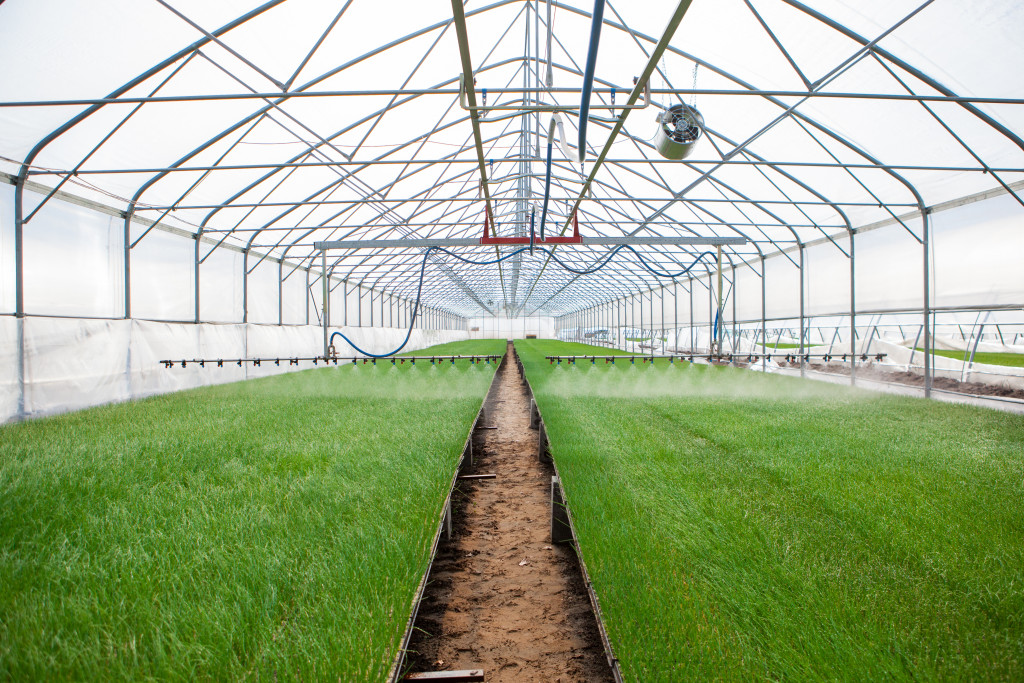- Conduct market research and identify a niche to tailor your approach, differentiate from competitors, and meet customer needs.
- Develop a business plan that outlines goals, strategies, financial projections, and operational plans.
- Secure adequate funding through loans, grants, crowdfunding or partnerships.
- Invest in the right equipment to enhance efficiency and productivity.
- Build relationships and seek expert advice to access resources, information, and potential business partnerships.
Starting an agriculture business can be a fulfilling and profitable venture. Whether you’re interested in crop production, livestock farming, or agribusiness services, there are several factors to consider when starting your agriculture business. This guide will provide five essential tips to help you get started on the right track. Following these tips and making informed decisions can increase your chances of success and build a thriving agriculture business.
1. Conduct Market Research and Identify a Niche
Before diving into the agriculture industry, conducting thorough market research and identifying a niche that aligns with your interests and expertise is crucial. Study market trends, consumer demands, and competition in your target area. Determine the specific products or services you want to offer and evaluate the market potential and profitability. By identifying a niche, you can tailor your business approach, differentiate yourself from competitors, and meet the specific needs of your target customers.
2. Develop a Business Plan

A well-structured business plan is essential for any agriculture business. It is a roadmap that outlines your goals, strategies, financial projections, and operational plans. Your business plan should include information about your target market, competitive analysis, marketing strategies, pricing models, production plans, and financial forecasts. It will help you secure funding from investors or lenders and provide a clear direction for your business’s growth and development. Regularly review and update your business plan as your business evolves.
3. Secure Adequate Funding
Starting an agriculture business often requires a significant investment in land, equipment, livestock, seeds, and other resources. Assess your financial needs and explore various funding options, such as loans, grants, crowdfunding, or partnerships. Prepare a detailed financial plan that includes your startup costs, ongoing expenses, and projected revenue. This will help you determine how much funding you need and demonstrate your business’s financial viability to potential investors or lenders. Consider working with financial advisors or agricultural consultants who can guide funding options and financial management.
4. Invest in the Right Equipment
Having the right equipment is crucial for the success of your agriculture business. Evaluate your specific operational needs and invest in quality equipment to enhance efficiency and productivity. Research different brands and models, compare prices, and consider the equipment’s long-term durability and maintenance requirements. Investing in the right equipment can streamline your operations, reduce labor costs, and increase overall productivity.
Here are some equipment to invest in:
Tractors
Investing in quality used tractors for sale is a must for agriculture businesses. Used tractors are a great way to get value for money while being reliable and efficient. They can perform various tasks, from tilling the soil to harvesting crops. Tractors also provide the power and torque needed to operate farm implements such as plows, harrows, drills, and mowers. Tractors allow for various tasks, such as cultivating large acres of land and towing trailers.
Irrigation Systems

Irrigation systems help maintain soil moisture levels during drought or dry spells, allowing you to provide your crops with the necessary amount of water consistently. Invest in an efficient irrigation system capable of delivering the right amount of water at the right time. Different systems, such as sprinklers, drip irrigation, and surface-watering systems, are available. Consider your budget and operational needs when selecting the best option for your business.
Harvesters
Harvesters eliminate manual labor by speeding up the harvesting process while reducing labor and fuel consumption costs. Invest in a high-quality harvester built to last and has reliable safety features. Select a model compatible with different crop types so you can use it on multiple crops throughout the year without buying additional equipment.
Storage Facilities
Storage facilities are ideal for storing crops, materials, and equipment. Invest in a facility that meets your storage needs with ample space and can maintain the quality of stored items over time. Consider factors such as climate control, power sources, pest prevention methods, access points, and security measures before investing. Additionally, explore the option of renting or leasing if purchasing a facility outright is not feasible initially.
5. Build Relationships and Seek Expert Advice
Networking and building relationships with industry professionals, farmers, suppliers, and agricultural organizations can be invaluable for your agriculture business. Attend industry events, join local farming associations, and participate in workshops or training programs to connect with like-minded individuals and gain insights from experienced professionals. Establishing a network can provide access to valuable resources, information, and potential business partnerships. Additionally, seek advice from agricultural experts, consultants, or mentors who can offer guidance and share their knowledge and experiences. Their expertise can help you navigate challenges, make informed decisions, and avoid common pitfalls in the agriculture industry.
Final Thoughts
Following these five tips can lay a strong foundation for your agriculture business. Conduct market research, develop a comprehensive business plan, secure adequate funding, invest in the right equipment, and build relationships within the industry. Starting an agriculture business requires careful planning, dedication, and continuous learning. Still, with the right strategies and a passion for agriculture, you can embark on a rewarding and successful journey in the agricultural sector.



